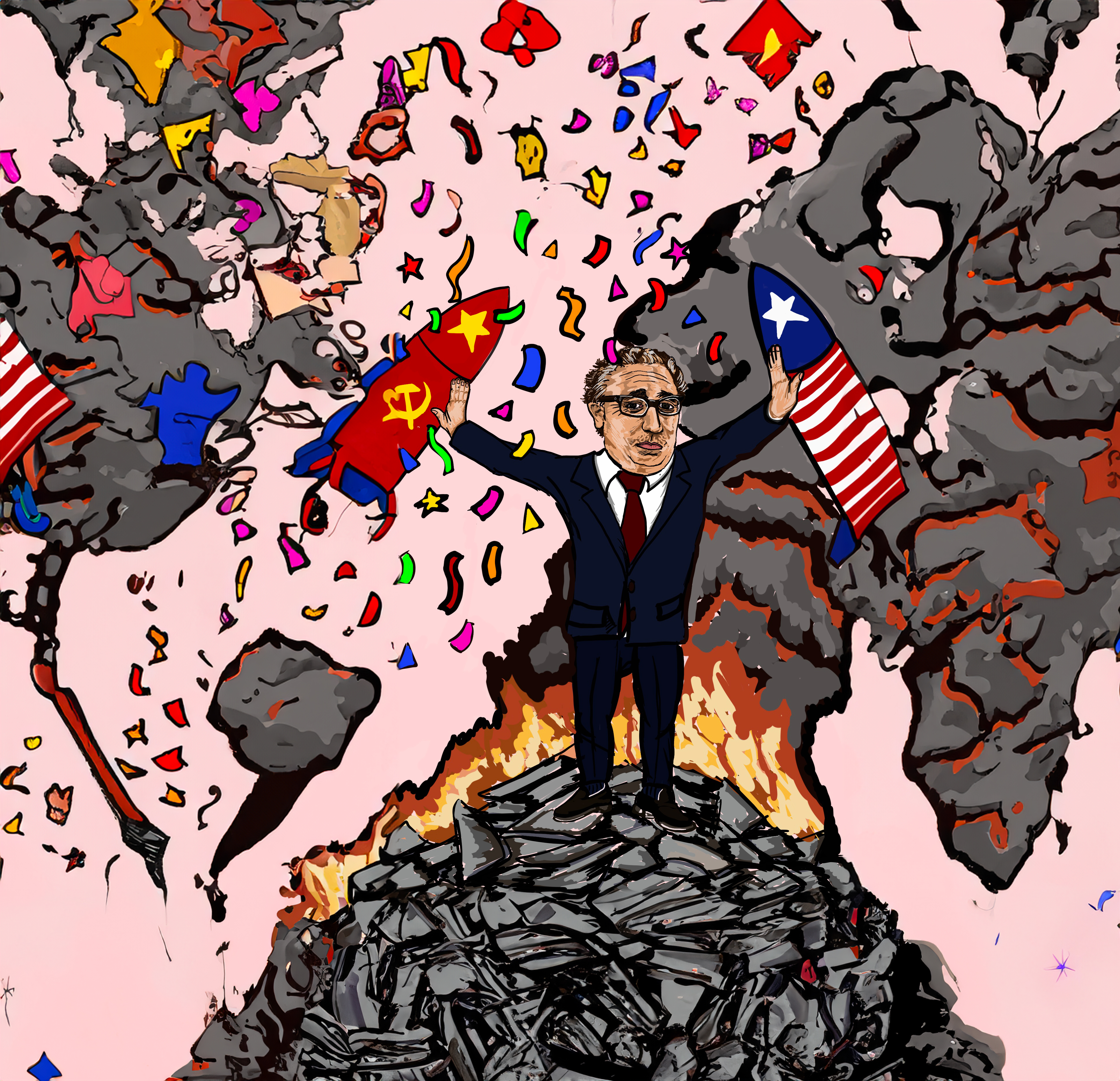
By Arjun Pathy ’25
On November 29, 2023, Henry Kissinger’s death at 100 years old brought about a mix of sharp criticism and celebration over his legacy. Perhaps one of the most divisive figures in American history, Kissinger is remembered as either the man who saved the world or murdered millions of civilians. However, looking at Kissinger’s legacy through this binary of heroism vs. villainy neglects to consider the unique context in which his world-altering decisions were made.
Kissinger, who worked under former presidents Richard Nixon and Gerald Ford as Secretary of State and National Security Advisor, served from 1969 to 1975 while the threat of nuclear armageddon was of utmost concern. The Cold War yielded countless proxy conflicts in which the communist Soviet Union struggled against the capitalist United States to dominate the world order. Kissinger was put on the front lines as a foreign policy expert to sort out these messy conflicts.
His position allowed him to accumulate monumental successes and significant mistakes. Perhaps his most important triumph was the Soviet détente, which allowed U.S.-Soviet relations to slowly normalize. Through a series of arms treaties and peace talks, Kissinger eased tensions between the two superpowers, arguably preventing nuclear war and prolonged proxy conflicts. In this case, Kissinger’s preservation of human life is irrefutable.
However, this side of Kissinger’s foreign policy was balanced with another side that reflected his often ruthless dedication to maintaining U.S. power on the global stage.
One of his most controversial decisions was to carpet bomb Cambodia in an effort to weaken Northern Vietnamese forces during the Vietnam War. Although Cambodia was not directly involved in the war, it suffered tens of thousands of civilian casualties. The ensuing chaos in Cambodia resulted in the ascendance of a murderous dictatorship and decades of political and economic instability.
Yet, in the struggle for influence that defined the Cold War, Kissinger’s decisions, even if not successful in the long term, staved off communist influence in Vietnam, Bangladesh, and much of Latin America.
Looking back on these proxy conflicts, they may seem tangential and unnecessarily fought. Foreign interventions that have taken place during most Americans’ lifetimes, such as in Iraq, have been just that — poorly justified, tragic mistakes. From this perspective, Kissinger’s actions are unforgivable.
However, one must take a more nuanced perspective to judge his actions effectively. The Cold War was not fought on U.S. or Soviet soil. Rather, it was a war of influence and fear in which a slight miscalculation could have had grave consequences. The war was not fought on U.S. and Soviet borders; it was fought in Vietnam, Chile, Argentina, Egypt, and many other countries where capitalism and communism battled for supremacy.
Without a doubt, Kissinger’s lack of regard for human life in bombing campaigns and coups was detestable. However, when judging his larger legacy, one must imagine a world in which, instead of detente, the U.S. refused to communicate and negotiate with the Soviet Union. Or a world in which the U.S. and China couldn’t engage in trade and lacked diplomatic ties. Like it or not, the world we live in today has been shaped by Kissinger’s decisions — in both good and bad ways.
An undoubtedly bold figure, Kissinger made some of the most consequential decisions in world history. To condemn his legacy is to accept the reality of failed U.S. policies and murder, but it is also to condemn the relative peace of the last 50 years of U.S. international dominance that has yielded unprecedented economic and social development.
In light of this complicated reality, it is impossible to label Kissinger as “good” or “bad.” Instead, it is best to view him and his decisions as a product of the tumultuous and uncertain era in which he lived.




